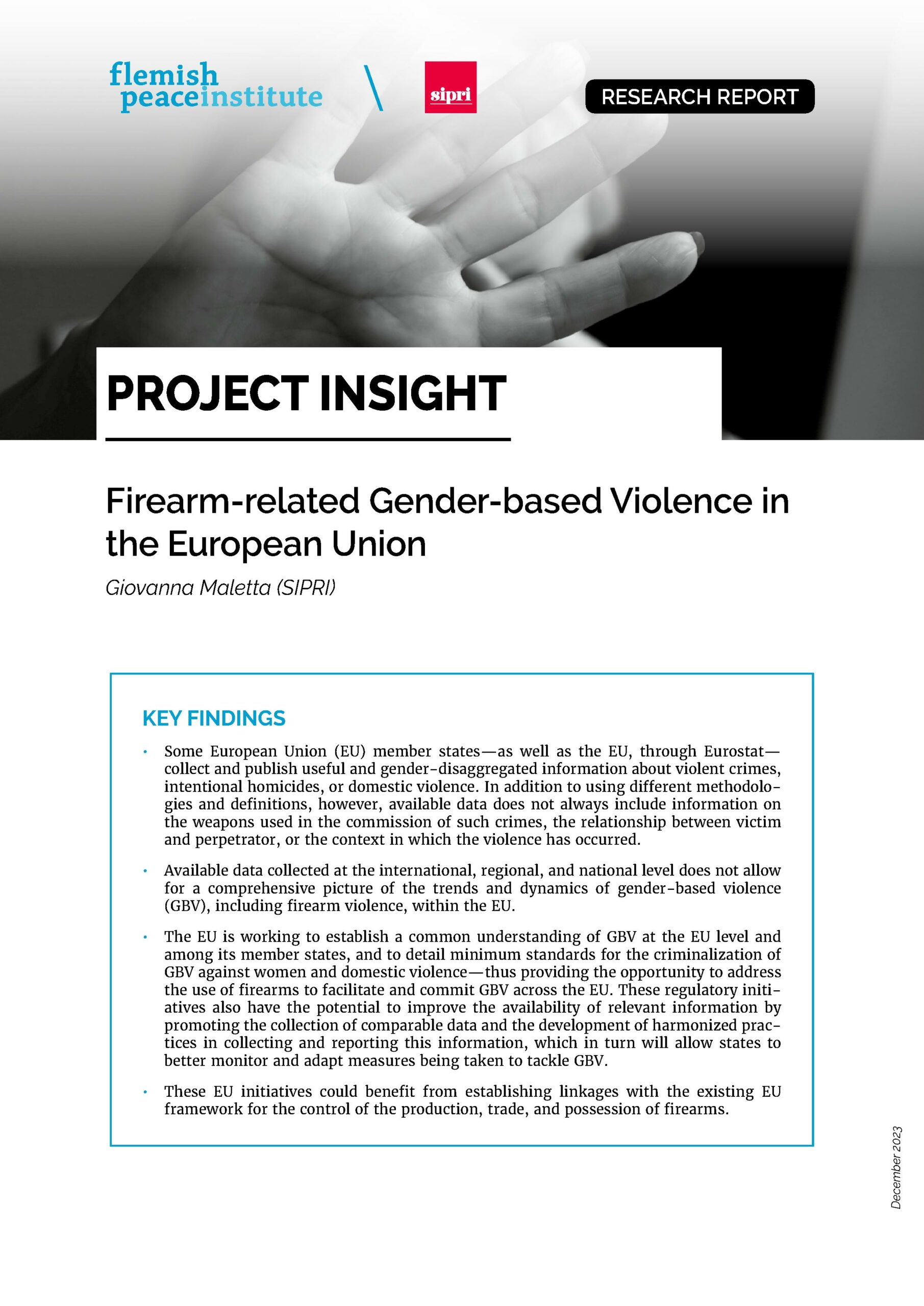Project Insight Research Report: Firearm-related Gender-based Violence in the European Union
Firearm-related Gender-based Violence in the European Union
Some European Union (EU) member states—as well as the EU, through Eurostat—collect and publish useful and gender-disaggregated information about violent crimes, intentional homicides, or domestic violence. In addition to using different methodologies and definitions, however, available data does not always include information on the weapons used in the commission of such crimes, the relationship between victim and perpetrator, or the context in which the violence has occurred.
Available data collected at the international, regional, and national level does not allow for a comprehensive picture of the trends and dynamics of gender-based violence (GBV), including firearm violence, within the EU.
The EU is working to establish a common understanding of GBV at the EU level and among its member states, and to detail minimum standards for the criminalization of GBV against women and domestic violence—thus providing the opportunity to address the use of firearms to facilitate and commit GBV across the EU. These regulatory initiatives also have the potential to improve the availability of relevant information by promoting the collection of comparable data and the development of harmonized practices in collecting and reporting this information, which in turn will allow states to better monitor and adapt measures being taken to tackle GBV.
These EU initiatives could benefit from establishing linkages with the existing EU framework for the control of the production, trade, and possession of firearms.

About the Author
Giovanna Maletta is a senior researcher and acting programme director for the Dual-Use and Arms Trade Control programme at the Stockholm International Peace Research Institute (SIPRI). Giovanna has been working at SIPRI since 2017 when she joined as a European Union Non-Proliferation Consortium intern. Her research work centres on issues related to the implementation of national, multilateral, and international export control standards and instruments, with a particular focus on EU engagement with arms export policies and the Arms Trade Treaty. Giovanna’s work also involves mapping cooperation and assistance activities in the field of arms transfer and small arms and light weapons controls.
